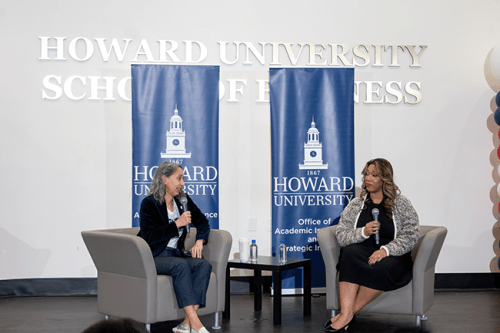What does 1930’s Italy have to do with Ethiopia’s civil war 40 years later? Everything, says researcher at Howard University, Dawit Muluneh, M.A.
As an African Studies and Ethiopian research scholar, his work pulls focus to Ethiopia prior to European influence and asserts that the introduction of fascist Italy into Ethiopia in the ’30s was the root cause of the country’s civil war that took place from 1974 to 1991. In 2021, Muluneh published his book, “Hopeless Romantic: The Untold History of Ethiopia.”
Muluneh’s master’s research specifically centers on his own Ethiopian culture and history, formally known as Ethiopic studies, and telling the authentic history. His research contends that failed attempts to revitalize African nations is mainly “attributed to development models designed by westerners that do not consider cultural factors.”
Through his research, Muluneh asserts that Ethiopic studies has been subject to perversion due to Italian’s invasion. Under fascist dictator Benito Mussolini, Italy occupied Ethiopia for five years after the second Italo-Ethiopian War. Muluneh contends that although Ethiopia was never formally colonized, the influence of European countries and scholars created a distorted truth.
“One of the reasons why I came over to Howard is because I recognized the ideology that everybody abides by here at Howard: the need to collaborate, not just with Ethiopians, but [with] Africans and Blacks across the world,” Muluneh says.
Muluneh’s book specifically references the research of Carlo Conti Rossini and Enrico Cerulli. The pair were sent by Mussolini with the goal of unearthing the best way to conquer Ethiopians. Muluneh aims to address how these findings have been used in academia to tell the history of the country.
One of the reasons why I wanted to come [to Howard] is Ethiopia is in Africa and it should be studied under the lens of African studies, not European studies,”
Muluneh asserts that Ethiopia’s collapse is attributable to this misrepresentation of history taken as “authentic truth.” In the potential sources for his research, Muluneh found writings, with racist and fascist implications.
“These are the type of texts we are reading in class, and I was saying this is not scholarship, it's just racism,” he says. “And if you're giving me texts like this to read, you at least owe it to me to put it in the right context.”
In 2004, Muluneh says Ethiopians established “philology”: the study of the structure, historical development, and relationships of a language or languages. With Cerulli and Rossini’s previous works serving as the groundwork for today’s history of Ethiopia, Muluneh says it’s important to teach the perspective of Ethiopian history from its native historians prior to scholars who entered the country after the Italian invasion.
“Taking the writings of what colonizers have done and saying, ‘This is the authentic truth’, we can’t say that colonizers or their writings is scholarship when it’s embedded in bias,” Muluneh explains. “I always like to use an example of African American studies, it’s like only engaging with literature that was written by (slave) masters...and now we know everything there’s to know about African Americans.”
In contrast with other institutions, Howard University houses its Ethiopic studies program inside its African studies department, a key distinction to Muluneh that would aid in attracting him to The Mecca.
“One of the reasons why I wanted to come [to Howard] is Ethiopia is in Africa and it should be studied under the lens of African studies, not European studies,” Muluneh contends. “If it's not under African Studies that creates a world of problems because issues like colonization, racism and things like that are never addressed, which is an issue when you’re reading material written by colonizers.”
At Howard, Muluneh appreciates his advisor’s receptiveness to his research.
“I decided that I wanted to come to an institution where I would be supported and helped. So, I came to Howard,” Muluneh says. “I can genuinely say people are interested in my research, something I did not have previously…they didn’t think [my research] was real scholarship. Here, it's the exact opposite.”
As a travelling Sunday school teacher, Muluneh realized that his work’s Pan-African nature echoed within the youth eager to correct Ethiopian history. While obtaining his doctorates at Howard, he also teaches Ethiopian history through a series of YouTube channels that explain the Ethiopian Orthodox Tewahedo Church. He has amassed nearly 13,500 subscribers.
“The major point that I want students to take away is that our history has been hijacked and stolen, and it is our responsibility to tell the story the right way,” says Muluneh.





